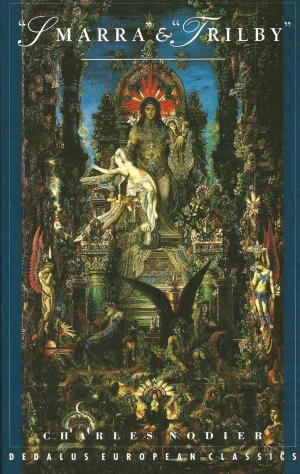| Author: | J.-K. Huysmans | ISBN: | 9781907650307 |
| Publisher: | Dedalus Ebooks | Publication: | January 5, 2010 |
| Imprint: | Dedalus Ebooks | Language: | English |
| Author: | J.-K. Huysmans |
| ISBN: | 9781907650307 |
| Publisher: | Dedalus Ebooks |
| Publication: | January 5, 2010 |
| Imprint: | Dedalus Ebooks |
| Language: | English |
Huysmans novel, though it is clearly rooted in the preoccupations of the late 19th century, is remarkably prophetic about the concerns of our own recent fin de siecle. With its allusions to, amongst other things, Satanic child abuse, alternative medicine, New Age philosophy and female sexuality, the novel has clearly a lot to say to a contemporary audience. As with most of Huysmans' books, the pleasure in reading is not necessarily from its overarching plot-line, but in set pieces, such as the extraordinary sequences in which Gilles de Rais wanders through a wood that suddenly metamorphoses into a series of copulating organic forms, the justly famous word-painting of Matthias Grunewald's Crucifixion altar-piece, or the brutally erotic scenes, crackling with sexual tension, between Durtal and Madame Chantelouve. If it is about anything, La-Bas is about Good and Evil. This enlightening new translation will be especially useful to students of literature. Not only does it contain an introduction that puts Huysmans in context for those who are new to his work, it also includes extensive notes to unlock the mass of obscure words that litter the text, and references to a vast array of scientists, false messiahs and misfits whose ideas went into the concoction of this strangely fascinating book. Beryl Bainbridge in The Spectator �This novel is one of the key texts of the Decadent movement of the 1890s and writhes with satanists, occultists, incubi (male demons), succubi (female demons) and intellectuals.†Sophia Martelli in The Observer "This Gothic shocker is not for the faint hearted..." Jerome Boyd Maunsell in The Times "The classic tale of satanism and sexual obsession in nineteenth-century Paris, in an attractive new edition. The novel's enervated anti-hero, Durtal, is writing a book about Gilles de Rais, child-murderer and comrade in arms of Joan of Arc. When he's not swotting up on alchemy, visiting Rais' ruined castle and fantasising about a mystery woman, he is pondering Catholicism with his friends. But his sexual adventures and historical studies mesh when he's invited to witness a black mass. Strong meat for diseased imaginations." Time Out
Huysmans novel, though it is clearly rooted in the preoccupations of the late 19th century, is remarkably prophetic about the concerns of our own recent fin de siecle. With its allusions to, amongst other things, Satanic child abuse, alternative medicine, New Age philosophy and female sexuality, the novel has clearly a lot to say to a contemporary audience. As with most of Huysmans' books, the pleasure in reading is not necessarily from its overarching plot-line, but in set pieces, such as the extraordinary sequences in which Gilles de Rais wanders through a wood that suddenly metamorphoses into a series of copulating organic forms, the justly famous word-painting of Matthias Grunewald's Crucifixion altar-piece, or the brutally erotic scenes, crackling with sexual tension, between Durtal and Madame Chantelouve. If it is about anything, La-Bas is about Good and Evil. This enlightening new translation will be especially useful to students of literature. Not only does it contain an introduction that puts Huysmans in context for those who are new to his work, it also includes extensive notes to unlock the mass of obscure words that litter the text, and references to a vast array of scientists, false messiahs and misfits whose ideas went into the concoction of this strangely fascinating book. Beryl Bainbridge in The Spectator �This novel is one of the key texts of the Decadent movement of the 1890s and writhes with satanists, occultists, incubi (male demons), succubi (female demons) and intellectuals.†Sophia Martelli in The Observer "This Gothic shocker is not for the faint hearted..." Jerome Boyd Maunsell in The Times "The classic tale of satanism and sexual obsession in nineteenth-century Paris, in an attractive new edition. The novel's enervated anti-hero, Durtal, is writing a book about Gilles de Rais, child-murderer and comrade in arms of Joan of Arc. When he's not swotting up on alchemy, visiting Rais' ruined castle and fantasising about a mystery woman, he is pondering Catholicism with his friends. But his sexual adventures and historical studies mesh when he's invited to witness a black mass. Strong meat for diseased imaginations." Time Out















